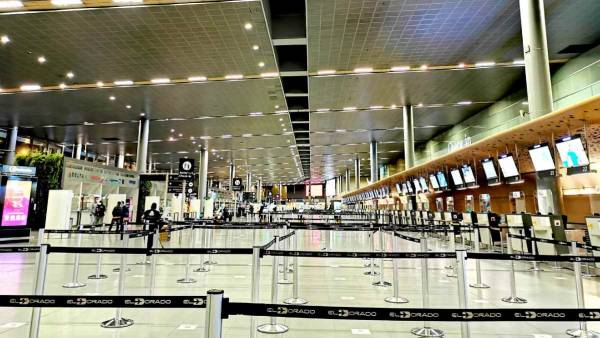Impact of corporate spending cuts on hotels
by Amadeus and The Economist Intelligence Unit
The Economist Intelligence Unit sponsored by Amadeus conducted the study "The Austere Traveler: Impact of Business Spending Cuts on Hotels", for which 354 executives from around the world were interviewed between November and December 2008. All executives surveyed travel for business at least once a quarter, 37% travel once a month and 7% do so weekly.
44% of the executives participating in this survey were senior managers/board members, while the rest were senior executives and other managers. Geographically, respondents were distributed as follows: North America 29%, Europe 29%, Asia-Pacific 29% and rest of the world 13%.
In times of economic difficulties one would expect an increase in the need of executives for certain attentions that make them forget the tensions of business life. However, those hotels that think that the way to attract stressed executives is to increase luxury, will waste their money, according to our survey.
In the era of the austere traveler business guests care little that the hotel restaurant has a Michelin star or that the gym has the most modern machine, and much more of the basic amenities: good WiFi access, simple check-in and a quiet room. This is a time when business is conducted within rooms via remote access connections rather than in luxurious hotel business centers. Most executives value pragmatism over comfort.
Not surprisingly, the survey has also revealed that the crisis leads to greater control over business travel budgets. The pressure comes not only from CFOs, but also from shareholders, willing to deal with criticism that the corporate culture had fallen into excess before the crisis.
Many executives say they will cut back on travel in the coming months, with executives in Asia-Pacific and North America pointing to further cuts in their travel plans. By contrast, more than half of European executives believe they will continue to travel the same. However, this will not be the only difficulty that the hotel sector will have to face. In addition to their decrease in number, business trips will be reduced in duration and in many cases companies will not resort to business class flights or five-star hotel establishments for their executives.
It's no wonder that hotel customers worry more about prices in the current context, and executives are more likely to turn to trusted hotel chains. Having a smaller budget for hotels means not taking risks with the unknown: the experience of cultural and luxury leisure is discarded, and it seems that accommodation in hotel chains with a uniform level of service in their different establishments wins whole. This is particularly true for respondents from North America and Asia-Pacific.
In line with the new times, economic chains have a good opportunity to expand their market share. However, competing solely on price will not be enough. Despite the austerity times, executives are clear that they expect to obtain a minimum level of service.
Fewer trips, cheaper and shorter
The economic recession may explain the more demanding environment that hotels will encounter. About half (47%) of executives surveyed say they plan to make fewer trips in the next 12 months due to the economic crisis. Especially worrying for hotels is the considerable proportion of executives (16%) who believe that economic tribulations will mean a drop of more than 30% in the number of trips made.
Travel budgets are under pressure around the world and companies are looking for various strategies to keep them under control. The most widespread strategy is to cut travel for internal meetings – an approach adopted by 46% of respondents' companies. However, the drop in the frequency with which trips are made will not be the only concern for hotels. Even when traveling, business travelers will need to economize, travel in economy class instead of business class, and stay in three-star hotels instead of five. More than 28% of the executives surveyed believe that their companies will lower the hotel category, ignoring the four- and five-star establishments.
The most aware of the luxury cut are Asian business travelers — 33% of executives in this region believe they will stay in lower-end hotels. (At the very least, hotels can take comfort in the fact that the cuts will hit airlines hardest — 36% of executives believe an unusual trend of economy class travel will begin in the next 12 months.)
Another strategy companies can adopt is to hold meetings of more attendees centralized at regional headquarters, rather than sending their employees to provincial delegations. This may be good news for hotels in cities like London, New York and Hong Kong, where supply struggles to keep up with demand, though it's bad news for everyone else. Around half of the respondents believe that their companies will follow this model.
Other common measures to curb travel costs include: the need for approval of travel by a superior (37 per cent), the reduction of travel among junior staff (33 per cent); and the granting of authorization exclusively for trips linked to the generation of new business (24%).
If there is an incentive for the hotel sector, it will have to be sought in that there are very few companies that intend to impose a global ban on international travel.
If dealing with fewer but more spartan customers wasn't enough of a problem for hotels, executives surveyed also expect business trips to be slightly shorter. In the last 12 months the average stay of 11% of executives has been one night. In the next 12 months, this percentage is expected to increase to 16%.
It's no wonder that an overwhelming majority of companies consider pressure within the organization to cut costs as the first reason to cut hotel expenses. However, this will not be the only effect on hotels. Expensive travel is increasingly being avoided thanks to the corporate use of collaborative technologies, such as videoconferencing, cited by 41% of executives.
The study clearly reveals that price will be a key factor for hotels to continue to attract corporate customers. 45% of respondents believe that hotel rates will be "totally decisive" in choosing their hotel next year, while another 36% consider it an "important factor" to take into account. In addition, companies will try to take advantage of the reduction in the number of customers that hotels face. The majority of respondents believe that their companies will use the economic crisis to get the best possible hotel rates. Interestingly, although this approach will be adopted in a virtually uniform manner, there are three exceptions. Those who travel to Japan, the United Kingdom, and the United States are far less likely to do so with downward negotiated fares than those traveling to the rest of the world.
Austere attitudes
With less money to spend on upscale hotels, most travelers will turn to well-known establishments they trust. A large percentage (61%) of executives cite a trustworthy chain, with uniform service levels across all their establishments, as a critical factor for them over the next year. The chain is particularly important to executives in the Asia-Pacific and North American regions. In Western Europe (53%) fidelity to the known is relatively lower. On the contrary, very few executives will choose to stay in a hotel that offers a cultural experience of the destination country.
Nonetheless, executives are realistic about what this means in terms of service. They are willing to accept less luxury for a lower price. The study suggests that hotels that bolster their high-end ancillary services to gain an advantage, or that set up luxurious business centers or meeting rooms, are going to waste their money — at least when it comes to attracting business customers.
Executives will focus their attention on whether hotel chains get the basics right. A good WiFi connection or a simple booking process are important services in choosing a hotel that. Only one Western European executive comments that a good range of ancillary services is decisive in their choice of hotel, compared to 5% of executives in the Asia-Pacific region
As for what is meant by a good service, again it is essential to get simple things right. Efficient check-in (68%), flexibility to make changes, such as last-minute cancellations (64%), and quick problem resolution (59%) are considered the best indicators of good service. In comparison, any service with traces of luxury – such as private concierge services for guests – is estimated as a much less relevant indicator. Even receiving compensation for loyalty to the chain falls to low positions on the list. However, there are slight regional differences. Western European executives, for example, are more impressed by flexible check-in, while Asians are more enthusiastic than others when their loyalty is rewarded.
More than half of respondents (54%) say they value pragmatism over comfort, a low percentage (19%) like to make business trips with their families and less than half (43%) consider expanding their business trips to include leisure time.
Stick to budget
Of all the players in the hotel sector, economic establishments are particularly well positioned to address the crisis as an opportunity. In fact, 44% of the sample believe that accommodating executives in budget hotels is a smart step in the current climate. In comparison, 29% consider it important for their company's prestige to stay in the best hotels. However, high-end hotels in London, Milan or Paris may have to pay attention to this fact: the number of people who identify the prestige of the company with that of the hotel in which they are staying drops alarmingly in Western Europe to only 14%.
Even in times of crisis, budget hotels need to compete on more than mere price to succeed. Although executives are actively looking for cheaper alternatives, they are clear about the minimum level of service they expect from a low-cost option. The most important thing is the Internet connection. More than three-quarters of respondents believe that the inability to connect in their room would be a reason not to stay in a budget hotel. Good transport networks, a quiet room and a central location are other factors considered indispensable.
What is apparently not so important – both in budget hotels and in those that provide all the services – is the quality of the business facilities. Only 24% of respondents believe that the absence of services such as a specific business center would be a reason not to stay in a budget hotel. In high-end hotels this percentage was, curiously, even lower, with 13%, despite the fact that another 37% cite it as a factor of some importance.
The fact that there are relatively cost-effective ways for hotels to continue to attract corporate customers in lean times should somewhat comfort the sector. However, at a time of increasing time constraints, security concerns and increased bureaucracy — where conventional wisdom sometimes seems to indicate that business travel has become tedious — perhaps the study's most encouraging finding is that executives still enjoy business travel and perceive its advantages.
Most executives "agree" or "totally agree" with the question of whether they enjoy business travel. In addition, 70% believe that the planned cuts in travel would be frustrating, either because they cannot meet with important or potential customers or because of the reduced ability to stay in touch with the business.
All of this bodes well for a return to more normal levels of corporate travel in the coming years. Whether companies are able to push for the choice of more modest accommodation is a totally different matter. It may happen that the use for professional purposes of budget hotels remains within the mainstream, as happened with low-cost airlines after the last crisis. Perhaps austerity is here to stay.

























Leave your comment